By Dale K.
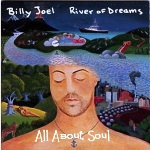 I’m not talking about the soul they say will never die and go to Heaven to be reunited with the dear departed.
I’m not talking about the soul they say will never die and go to Heaven to be reunited with the dear departed.
No, I’m talking about the kind that Billy Joel sings of in his album, River of Dreams. “It’s gonna get dark, it’s gonna get cold … You gotta get tough but that ain’t enough … It’s all about soul.”
As a young man, I spent 30 months in the combat zone off the coast of Vietnam. Some of the time, it was little more than a party. Other times, the reality of war was personal and the peril was close enough to touch. For my troubles, I came home with a mostly empty seabag and PTSD. I was adrift in a world that denigrated veterans and held me to a standard that I could not reach. The PTSD seemed mild and, to a degree, quite manageable with counseling. I tended to avoid aggressive men. I preferred the company of gentle ones and women. I wasn’t exactly sure why. I recognized it as nothing more than a personal preference. It was just part of the essence that is me. It seemed to be just a part of my soul.
In the mid-seventies I was diagnosed with an anxiety disorder and prescribed Valium. I was happy to abuse my prescription and, after a while, the doctor refused to prescribe it any longer. Several years later, the anxiety was out of control so I sought counseling. After hearing about how much I drank (I only told her about half the truth), the therapist told me I needed to stop drinking for 60 days before I could continue the sessions. It was recommended that I go to AA.
It took many months of on and off drinking to understand that alcohol was exacerbating my anxiety. It was this realization that persuaded me to stop drinking for good. My solution had become my problem. With abstinence, my life improved considerably. By the time those 60 days of sobriety rolled around, I no longer felt the need for a therapist. There were problems to resolve, but I was learning how to face them sober. Eventually, my anxiety was replaced with serenity and that has allowed me to have a beautiful life in sobriety. I raised two wonderful daughters that have never known their dad to drink. I ran my own business for 22 years before retiring in 2011. Yes, there were a couple of divorces, but I overcame the heartache and learned from those, too.
I say all this to give you the back story. Now, I’ll fast forward a bit to the summer of 2019. Something happened that brought an old memory that I had buried for 50 years into the light. It terrified me and my PTSD went through the roof. I began to avoid others. When I did leave the house, I was hyper-vigilant, always guarding my six, agitated, staying as far away from others as possible and fleeing when the threat bested me. It seemed I was always in a state of “fight or flight.” My AA meetings were a little different. I knew these people. They weren’t as threatening, but I could still sense that I was pulling away from them. Let’s just say I was social distancing before social distancing was cool.
While at home, I found myself running the same thoughts through my mind over and over with no resolve. I was losing sleep. Usually I sleep like a rock for 7-8 hours. Now, I felt lucky to get 5-6 hours and it was always interrupted. I knew I needed help and the VA provided me with a therapist. One thing she told me early on is that my mind totally erased the memory because it was protecting me. At that time, I couldn’t cope with it. I recalled it now because I’m better equipped to manage it and I’ll be ok. They say that a mind is a terrible thing to waste. Apparently, it’s also an incredible survival tool!
For the last five months, I’ve been self-isolating because of the pandemic. As much as I empathize with those who are suffering because of it, it has brought me some comfort. When I go to the grocery store others are avoiding me! What? They’re doing what I’ve been doing for months. The stress of going out in public was reduced to a very manageable level. This gave me the opportunity to relax and decompress. With that, I was able to think clearer and engage in more thoughtfulness towards myself.
While about a third of people are experiencing depression and/or anxiety because of COVID-19, I’m finding an old friend … serenity. How I accomplished this was by heeding the advice that was being given to me. I attended my weekly therapy sessions with enthusiasm and undertook a lot of self-reflection in-between. I stayed connected to my AA friends and the very large family I come from via Zoom meetings. I ate well. That not only included lots of fruits and veggies, but ice cream for my soul. I forced myself to stay in bed if I woke early. I paid close attention to my feelings. I didn’t judge or deny them. I just felt and considered them. I focused on my breath when anxiety rose its ugly head. I stayed busy with renovations to my home. I checked in on my neighbor and helped her when I could. I built a bird feeder and took hikes so I can connect with a very soothing Mother Nature. I rode my motorcycle a lot because it demands that I only focus on what is in front of me. It’s like a form of meditation for me.
All of this grounding helps me stay in the present. It’s only in the present that I can look at everything objectively. I’m not that person that was traumatized 50 years ago. Today I have strengths that I honed with therapy, the rooms of AA, my intact sobriety, the classroom of life and the love of my family. I can use those strengths to defeat or, at least, minimize the effects of trauma. I was a fairly well adjusted guy (some would argue this) before that memory stole my soul. Today, that memory is just a memory. I was hoping it would fade away, but I don’t believe that will happen anymore. Fortunately, it is losing its power over my present. In my 39 years of sobriety I’ve proven to myself that I’m better and stronger than this. I’ll not only prevail, but grow from this adversity!
Sometime, in the not-too-distant future, life will evolve to some kind of new normal. The guy that will greet that future will be an even better version of the me that I’ve known in sobriety. It was dark and cold, but I was tough because I found my soul! Isn’t that what it’s all about?
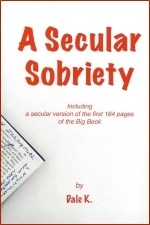 Dale K. has lived in North Carolina since 2018. He grew up in Michigan and attended 12 years of Catholic school, but it didn’t “take.” He decided he was an atheist at the age of 13. He moved to South Florida in 1974. He first came to AA in 1980 and had his last drink in 1981. In the mid ‘80s a secular meeting was started in his home town of Boca Raton. He attended that meeting exclusively until he moved up the coast in 2010.
Dale K. has lived in North Carolina since 2018. He grew up in Michigan and attended 12 years of Catholic school, but it didn’t “take.” He decided he was an atheist at the age of 13. He moved to South Florida in 1974. He first came to AA in 1980 and had his last drink in 1981. In the mid ‘80s a secular meeting was started in his home town of Boca Raton. He attended that meeting exclusively until he moved up the coast in 2010.
There he found traditional AA to be just like he had left it. In 2013 he discovered that AA had published a new edition of the Big Book in 2001. He was quick to read it and see the changes. Realizing there were none made to the “first 164 pages,” he decided it was time to make the changes himself. With that, he began writing his book, A Secular Sobriety. It was first published in June 2017 and has surpassed 1000 sales. It can be purchased on Amazon. A Secular Sobriety: Including a secular version of the first 164 pages of the Big Book.
The featured image for today’s article is a photo taken by Robin J Ramage in Port Dover, Ontario.
The post A Soul Sighting first appeared on AA Agnostica.
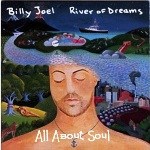
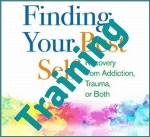
 I’ll be doing a webinar on Finding Your Best Self September 10, 2020 and also welcome questions at any time at
I’ll be doing a webinar on Finding Your Best Self September 10, 2020 and also welcome questions at any time at 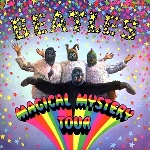
 I am an agnostic. Life to me is a “Magical Mystery Tour”, as per the Beatles. I certainly don’t believe in a anthropomorphic, interventionist, male deity. Not a chance. I should also note that I have a Master’s degree in Religious Studies obtained from McGill University in Montreal, Québec.
I am an agnostic. Life to me is a “Magical Mystery Tour”, as per the Beatles. I certainly don’t believe in a anthropomorphic, interventionist, male deity. Not a chance. I should also note that I have a Master’s degree in Religious Studies obtained from McGill University in Montreal, Québec. No, I do not use the Big Book. The word “God” (or “He” or “Him” etc.) is used 281 times in the first 164 pages of the Big Book. A Christian God, by the way. The book is hugely disrespectful of non-believers and of women. I have published, via AA Agnostica, a total of eight secular AA books. One of them was written by two women back in 1991. It’s called The Alternative 12 Steps – A Secular Guide to Recovery. When I first found the book, it had been out of print for over a decade. In order to publish a second edition, I needed the permission of the authors, and it took me a year to find them. I published the second edition in 2014.
No, I do not use the Big Book. The word “God” (or “He” or “Him” etc.) is used 281 times in the first 164 pages of the Big Book. A Christian God, by the way. The book is hugely disrespectful of non-believers and of women. I have published, via AA Agnostica, a total of eight secular AA books. One of them was written by two women back in 1991. It’s called The Alternative 12 Steps – A Secular Guide to Recovery. When I first found the book, it had been out of print for over a decade. In order to publish a second edition, I needed the permission of the authors, and it took me a year to find them. I published the second edition in 2014.




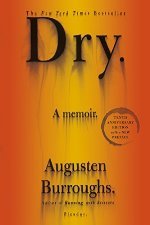
 I was staying with friends in New York and on July 4th, 2005, Independence Day, I went to watch baseball in the Bronx for over four hours (of steady drinking), then headed to Battery Park in Manhattan to see James Brown perform, followed by two parties in Brooklyn where I consumed four bottles of red wine, topped off by sleeping with a married woman. The following day, hungover and remorseful, I bought some books including a novel called Dry, by Augusten Burroughs, about a man who is forced to go to AA, hates it, then gradually likes it as he experiences the benefits of sobriety. I read this on the plane back to London a few days later and it planted a seed.
I was staying with friends in New York and on July 4th, 2005, Independence Day, I went to watch baseball in the Bronx for over four hours (of steady drinking), then headed to Battery Park in Manhattan to see James Brown perform, followed by two parties in Brooklyn where I consumed four bottles of red wine, topped off by sleeping with a married woman. The following day, hungover and remorseful, I bought some books including a novel called Dry, by Augusten Burroughs, about a man who is forced to go to AA, hates it, then gradually likes it as he experiences the benefits of sobriety. I read this on the plane back to London a few days later and it planted a seed.



